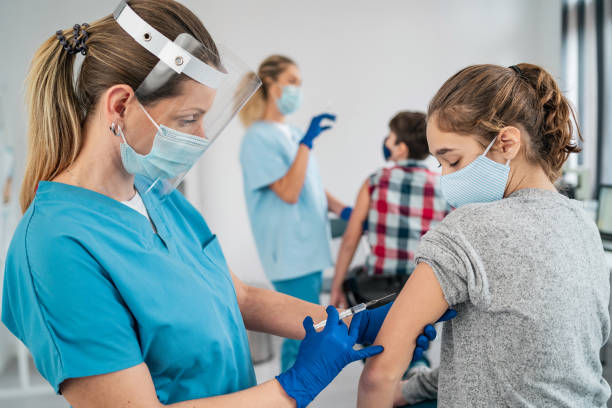
Last week, the Tennessee legislatures passed a law that counters or at least “clarifies” the so-called “mature minor doctrine”, forbidding the healthcare providers to vaccinate minors as young as 14 years old without their parent’s permission.
The law, called the “Mature Minor Doctrine Clarification Act”, requires healthcare providers to obtain informed consent from a parent or legal guardian before vaccinating a minor. According to bill sponsor Rep. John Ragan, who said that the doctrine “has been misinterpreted” and “abused”, the law was passed to “give parents back their rights to make medical decisions for their children.”
The “mature minor doctrine” was used by the Department of Health (DOH) in Tennessee in 2021 to justify the vaccination of minors ages 14 years and older even without their parents’ permission, as long as they are deemed “mature” by their doctors. Children, according to the doctrine, have “different maturities and capacities” in consenting to a medical process. This proposition, however, clearly contradicts the reality and violates the rights of the parents to guide and protect their young child/children. People of this age, as what can be demonstrated by statistics, have not enough capability to come up with well-thought decisions especially involving major medical interventions or procedures.
On May of 2021, Pfizer obtained emergency use authorization (EUA) permit for their COVID-19 vaccine for minors ages 12 despite the many controversies being uncovered in the clinical data, including the lack of proper result from studies and the lack of valid procedures.
Unlike states like Florida, Texas, and Colorado, Tennessee invokes the “mature minor doctrine” which allows minors to “understand the risks, benefits, and implications of their decisions to receive any care” without their parent’s or guardian’s approval. As stated by the National Institute of Health (NIH):
“Superimposed on these laws are two guiding principles. First, all states have statutes permitting minors to consent to medical care based on their legal status. Minors who are married, emancipated, pregnant, or in the military, for instance, are generally considered in control of personal health-related decisions. Second, broadly speaking, minors may typically seek and consent for services related to sexually-transmitted infections, pregnancy, family planning, and substance-related concerns without consent from parents, although specific laws vary by state. When it comes to vaccines, this second principle is upheld inconsistently, with some states—like California—abiding strictly, and others placing vaccination, even if against sexually transmitted infections, outside the statute’s purview.”
On the other hand, on March of this year, the World Health Organization (WHO) revised their recommendation for COVID-19 vaccines to minors and teenagers, allowing exemptions to those who are considered “low priority”. In the statement from WHO’s Strategic Advisory Group of Experts on Immunization (SAGE), it says that “the updated roadmap is designed to prioritize Covid-19 vaccines for those at greatest risk of death and severe disease”.
Last month also, it was exposed in a 2-sets document that Pfizer and the Centers for Disease Control and Prevention (CDC) withheld evidence that COVID-19 vaccines caused an increased risk of myocarditis, especially in young males, following the efforts of some groups in Japan and Germany that are questioning the reports of serious adverse events to people taking the Pfizer jab. The documents were leaked by Project Veritas, showing that Pfizer had “evidence that suggests patients who receive a COVID-19 vaccine are at an increased risk of myocarditis.”
References:
https://www.ncbi.nlm.nih.gov/pmc/articles/PMC8463387/





